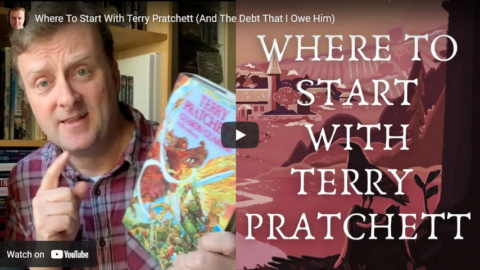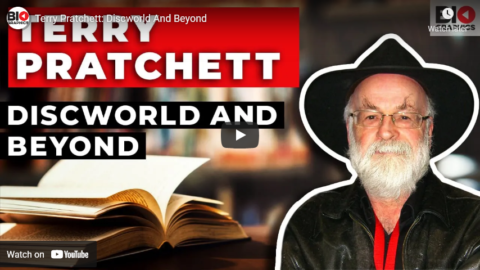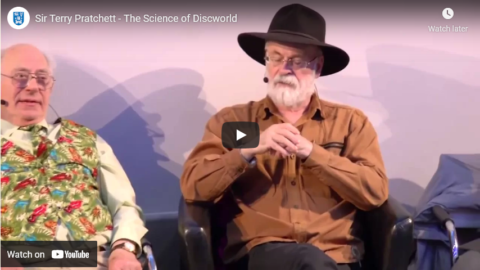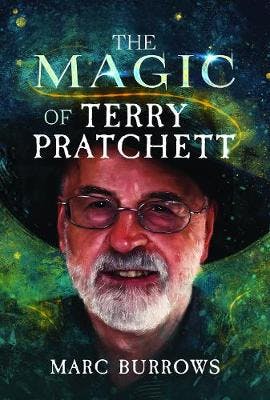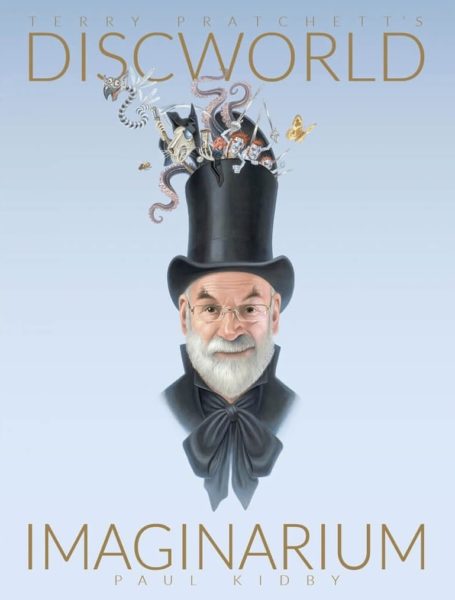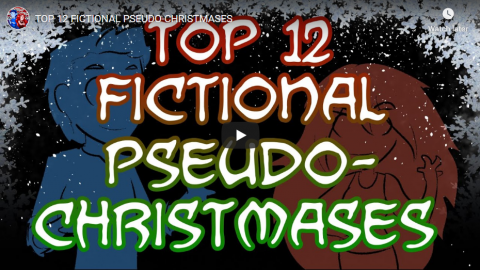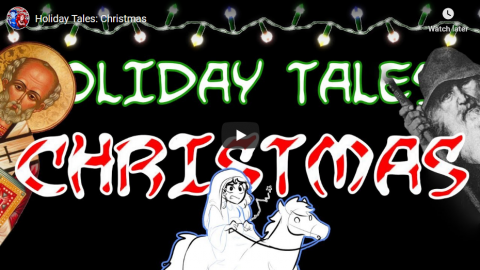People on the side of The People always ended up disappointed in any case. They found that The People tended not to be grateful or appreciative or forward-thinking or obedient. The People tended to be small-minded and conservative and not very clever and were even distrustful of cleverness. And so the children of the revolution were faced with the age-old problem: it wasn’t that you had the wrong kind of government, which was obvious, but that you had the wrong kind of people.
As soon as you saw people as things to be measured, they didn’t measure up. What would run through the streets soon enough wouldn’t be a revolution or a riot. It’d be people who were frightened and panicking. It was what happened when the machinery of city life faltered, the wheels stopped turning, and all the little rules broke down. And when that happened, humans were worse than sheep. Sheep just ran; they didn’t try to bite the sheep next to them.
Terry Pratchett, Night Watch, 2002.
November 29, 2023
QotD: The children of the revolution
February 14, 2023
You need a tailor. And a cobbler.
At least, that’s Tom Knighton‘s take:
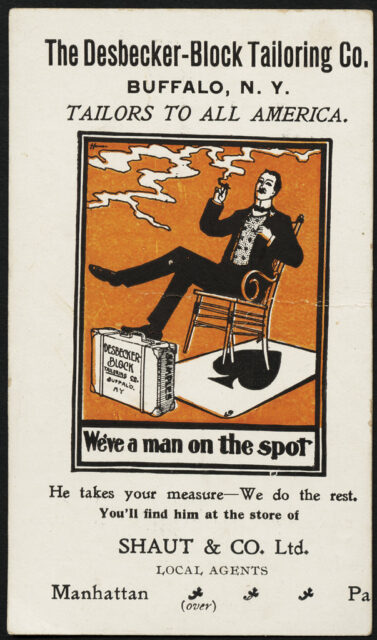
“The Desbecker-Block Tailoring Co. Buffalo, N. Y. Tailors to all America. We’ve a man on the spot. He takes your measure – we do the rest.” by Boston Public Library is licensed under CC BY 2.0 .
I’m now of the opinion that every man needs a tailor and a cobbler to go along with their barber.
Why? Because quality has a quantity all its own.
Yeah, I know that phrase usually goes the other way around, but we’re not talking about warfare where you need a lot of tanks and airplanes. We’re talking about clothes and accouterments. You can only wear one suit and one pair of shoes at a time. You’ve only got one head to wear a hat on. You don’t need 500 of each to have a well-rounded wardrobe.
So why do we? Why do we, as a society, insist on buying so much so cheaply?
What’s more, are you someone who supports those in the trades while simultaneously engaging in activity that threatens some of them?
Look, I get that not everyone can drop $500 for shoes or $5,000 for suits. I sure can’t, after all, so there’s no way I’d expect anyone else to. In fact, no one has to do any such thing.
However, what they can do is buy the best quality they can find, particularly in a grade that can be repaired and/or altered if needed.
We can start utilizing these tradesmen, hopefully needing them more often than our plumbers or auto mechanics. Not only will we dress better, but we’ll also show more young people there are other ways to go forward in life without spending tens of thousands of dollars to get a college degree that qualifies them for little more than to ask, “Do you want fries with that?”
I’m certainly in agreement with Tom on where the needle should rest on the quality-quantity meter, in that I’ve always preferred to buy higher quality whenever I could afford it rather than cheaper but lower quality items. It’s mostly paid off for me, although others in my family were of the other persuasion, where “more now” was better than “lasts longer”.
In a later post, he quotes Sam Vimes and again, I largely agree:
Despite that, I can buy quality. I may have to pay a bit more upfront, but it’s like the Vimes theory of boots written by Sir Terry Pratchett that’s been talked about here a couple of times:
The reason that the rich were so rich, Vimes reasoned, was because they managed to spend less money. Take boots, for example. He earned thirty-eight dollars a month plus allowances. A really good pair of leather boots cost fifty dollars. But an affordable pair of boots, which were sort of OK for a season or two and then leaked like hell when the cardboard gave out, cost about ten dollars. Those were the kind of boots Vimes always bought, and wore until the soles were so thin that he could tell where he was in Ankh-Morpork on a foggy night by the feel of the cobbles. But the thing was that good boots lasted for years and years. A man who could afford fifty dollars had a pair of boots that’d still be keeping his feet dry in ten years’ time, while a poor man who could only afford cheap boots would have spent a hundred dollars on boots in the same time and would still have wet feet. This was the Captain Samuel Vimes “Boots” theory of socioeconomic unfairness.
So, spend the money on the leather boots and skip having to spend it later.
As a result, though, that’s kind of luxurious.
April 6, 2022
Where To Start With Terry Pratchett (And The Debt That I Owe Him)
Mark Stay
Published 6 Nov 2020New to Terry Pratchett? Which book should you read first? I’ve been reading Terry’s books for over 30 years and will give you a quick guided tour of the best places to start with Terry and the Discworld. I also acknowledge the influence of Terry’s writing on my own work and my new book The Crow Folk.
Discover my Witches of Woodville series here: https://witchesofwoodville.com/#bookshop
My blog is here: https://markstaywrites.com
I’m co-presenter of the Bestseller Experiment podcast: https://bestsellerexperiment.com/podc…
September 12, 2021
Terry Pratchett: Discworld And Beyond
July 27, 2021
Sir Terry Pratchett – The Science of Discworld
Trinity College Dublin
Published 9 Aug 2012The Science of Discworld – with Terry Pratchett, Ian Stewart and Jack Cohen at SCIENCE GALLERY, Trinity College Dublin, Ireland in June 2012, as part of Dublin City of Science 2012
August 3, 2020
The Magic of Terry Pratchett by Marc Burrows
Rachel Cunliffe looks at a recent biography of the great science fiction/fantasy author Terry Pratchett by Marc Burrows:
A satirical sci-fi/fantasy writer might not seem the obvious choice to dissect the world-changing magnitude of an unforeseen pandemic — or so you might think if you’ve never read any of his books. But anyone familiar with the Pratchett’s oeuvre will know that the scouring wit and the unflinching grasp of humanity at its best and worst found within his pages would be the only true way to understand what has happened to our world since the start of the year.
Alas, we will never know how Sir Terry would have woven the government’s dysfunctional pandemic response, the etiquette of social distancing, mask and anti-mask culture or the mass shift to remote working into the realm of the Discworld (although we can be fairly confident that he would have done). But glimpses can be found in The Magic Of Terry Pratchett, a new biography by writer and comedian Marc Burrows.
This is the first full biography of the great man, from his upbringing in the quintessentially English hamlet of Forty Green, Buckinghamshire, to his battle with Alzheimer’s (which Pratchett dubbed “the Embuggerance”) and ferocious campaign for a law change to allow assisted dying — and featuring a whistle-stop tour of his 60-odd books.
It is, as Burrows admits from the start, the project of a committed fanboy. The author never actually got to speak to his literary hero (“This book is my chance to meet Terry Pratchett. It’s yours as well,” he explains early on), and has instead pieced together his life story through old interviews, archives, and conversations with friends and contemporaries.
The result is an engaging quest to get to know the man that both explores and adds to the mythology surrounding him. Pratchett was, as Burrows makes clear, a storyteller first and foremost, and some of his oft-repeated anecdotes — such as encountering a dead body age 17 on his first day as a junior reporter, or filing his copy from a shed on the roof — may have been based more on fantasy than reality. Where he cannot verify, Burrows sticks to the strategy taken by Tony Wilson in the film 24 Hour Party People: “When you have to choose between the truth and the legend, print the legend”.
As such, while this book will no doubt be of greatest interest to Pratchett fans, even those who have never opened a Discworld novel will find themselves entertained by its numerous detours — encompassing the educational apartheid of the 1950s, a surreal stint doing PR for Britain’s nuclear industry, and the once vibrant, now sadly endangered local journalism ecosystem.
July 2, 2020
QotD: Army recruits
There have been better attempts at marching, and they have been made by penguins. Sergeant Jackrum brought up the rear in the cart, shouting instructions, but the recruits moved as if they’d never before had to get from place to place. The sergeant yelled the swagger out of their steps, stopped the cart and for a few of them held an impromptu lesson in the concepts of “right” and “left” and, by degrees, they left the mountains.
Terry Pratchett, Monstrous Regiment, 2003.
March 6, 2020
Some of the early influences on Terry Pratchett’s writing
That is, the books that made him love reading and how he incorporated those early works into his own style. This is from a very late interview with Tom Chivers published after his death in 2015:
“I wasn’t particularly interested in books,” he says. “And my mum, God bless her, she rolled up her sleeves and gave me a penny per page, and it worked beautifully. I think she only gave me about thruppence, because the third book was The Wind in the Willows.” He was so enthused after this, she no longer needed to pay him. Indeed, Pratchett got a job in Beaconsfield library. “You’re talking to a man who thinks, mostly, that his school days assisted him not at all, but the library did, in spades.” He looks at me sharply. “You, when you were young, read lots of books, didn’t you? A –” he pauses, and chooses his next word carefully – “a —-load, I believe?” I did, I reassure him. “A library boy. I recognise the kind. I was the same.” He had an indifferent time at school – he grumbles about the “death or glory” nature of the 11-plus (he passed easily), and about old teachers who had a grudge against him at the High Wycombe Technical High School (“sort of half a grammar school. A big woodwork place”). But the fire kindled by Kenneth Grahame, and Ratty, Mole and Badger, grew, and blazed.
Pratchett’s own sense of humour, a sort of gentle, English, observational thing, stems from this period. “Wodehouse, obviously, but also I tore my way through the Just William books. Richmal Crompton was a very good writer. I think it was from her that I learnt irony. It took me a while to work it out.” Do you think you could define irony, I ask him. “Sort of like iron.” I deserved that, I acknowledge. “When you get hit on the head with it, you know it.”
He also fell in love with RJ Yeatman and WC Sellar, authors of 1066 and All That (“in the Thirties, when the middle classes were getting richer, the two of them really got as much fun out of that as you could. The Thirties were an awful lot of fun. Or at least until the end. Bad ending, the decade, admittedly”) and fell out with his headmaster for “bringing in a copy of Mad magazine. How horrible! And a copy of Private Eye. Seditious.” But it was the now defunct satirical magazine Punch which really formed the comic voice in which he now speaks. “I read my way through all the bound Punches. It was the best way to read history; you got it without granny looking over your shoulder, and it was just astonishing.
“And just about any writer of distinction, anywhere in the English language, worked for Punch. Mark Twain. Jerome K Jerome. And they spoke with the same voice, which opened the door for me – the same kind of slightly satirical, people-are-rather-silly-but-they’re-not-that-bad voice, friendly about humanity, fond of its foibles.” Apart from the books, the other influences of his youth are clear in his own writing – especially the later Ankh-set works, in which he frequently extols the virtues of the poor-but-respectable people living in tiny, tidy terraced houses, and of the self-made men and women. “There used to be a sort of dignity in labour,” he says. “I don’t think there is now.”
He has spoken, often, of how his time on local newspapers made him. He started at 16, in high dudgeon at his headmaster: “On my last day at the school, I left all my stuff behind and phoned up the editor of a local newspaper. He actually used some cliché like, ‘I like the cut of your jib, young man’, or something.” It is the stuff of legend that he saw his first dead body the next day, “work experience really meaning something in those days”, as he put it in his author’s bio in his books.
“Truthfully, without over-egging it, as I often do,” he says, “the library and journalism, those things made me who I am. Journalism makes you think fast. You have to speak to people in all walks of life. Especially local journalism. London journalism can p— in someone’s face and they can’t do anything about it. Try that in local journalism, and someone’s down to complain. Everyone should have one local journalism job in their lives, especially if they’re a nosy parker.” He talks of local journalists in the same way he does his parents, with a sense of quiet heroism. “I interviewed an elderly journalist who’d worked in a small town for a very, very long time. I asked: is it boring? And he said: over there, that’s where a couple pushed their daughter into the attic because she’d had a black baby. And over there, that’s where a man was caught in flagrante delicto with a barnyard fowl. And he’d said to the magistrates, ‘Well, it was my fowl’. Even those small moments, they make you realise the world is not as you thought.”
January 20, 2020
QotD: Maturity and wisdom
He wondered if it was at all possible to give this idiot some lessons in basic politics. That was always the dream, wasn’t it? “I wish I’d known then what I know now”? But when you got older you found out that you now wasn’t you then. You then was a twerp. You then was what you had to be to start out on the rocky road of becoming you now, and one of the rocky patches on that road was being a twerp.
Terry Pratchett, Night Watch, 2002.
December 28, 2019
QotD: The “missing” mass of the universe
For something to exist, it has to be observed.
For something to exist, it has to have a position in time and space.
And this explains why nine-tenths of the mass of the universe is unaccounted for.
Nine-tenths of the universe is the knowledge of the position and direction of everything in the other tenth. Every atom has its biography, every star its file, every chemical exchange its equivalent of the inspector with a clipboard. It is unaccounted for because it is doing the accounting for the rest of it, and you cannot see the back of your own head.*
Nine-tenths of the universe, in fact, is the paperwork.
* Except in very small universes.
Terry Pratchett, Thief of Time, 2001.
December 26, 2019
Top 12 Fictional Pseudo-Christmases
Overly Sarcastic Productions
Published 24 Dec 2019Happy holidays, one and all – even those of us from fictional universes where Christmas isn’t celebrated! Let’s celebrate by comparing twelve fictional Definitely Not Christmases and ranking them from lamest to best!
Our content is intended for teenage audiences and up.
PATREON: https://www.Patreon.com/OSP
MERCH LINKS: https://www.redbubble.com/people/OSPY…
OUR WEBSITE: https://www.OverlySarcasticProductions.com
Find us on Twitter https://www.Twitter.com/OSPYouTube
Find us on Reddit https://www.Reddit.com/r/OSP/
December 24, 2019
Holiday Tales: Christmas
Overly Sarcastic Productions
Published 25 Dec 2017Merry Christmas, all! In honor of this complex and multifaceted holiday, today let’s talk about some of the many and varied influences and major historical turning points that sculpted this holiday into what we know and love (or lose our minds at Starbucks over.)
Nobody tell Blue that this video is mostly historical.
PATREON: https://www.patreon.com/user?u=4664797
Find us on Twitter @OSPYouTube!
QotD: Fairy tales
Supposing an emperor was persuaded to wear a new suit of clothes whose material was so fine that, to the common eye, the clothes weren’t there. And suppose a little boy pointed out this fact in a loud, clear voice …
Then you have The Story of the Emperor Who Had No Clothes.
But if you knew a bit more, it would be The Story of the Boy Who Got a Well-Deserved Thrashing from His Dad for Being Rude to Royalty, and Was Locked Up.
Or The Story of the Whole Crowd Who Were Rounded Up by the Guards and Told “This Didn’t Happen, OK? Does Anyone Want To Argue?”
Terry Pratchett, Thief of Time, 2001.
December 14, 2019
QotD: Chocolate, Ankh-Morpork style
Ankh-Morpork people, said the Guild, were hearty no-nonsense people who did not want chocolate that was stuffed with cocoa liquor, and were certainly not like effete la-di-dah foreigners who wanted cream in everything. In fact they actually preferred chocolate made mostly from milk, sugar, suet, hooves, lips, miscellaneous squeezings, rat droppings, plaster, flies, tallow, bits of tree, hair, lint, spiders and powdered cocoa husks. This meant that according to the food standards of the great chocolate centres in Borogravia and Quirm, Ankh-Morpork chocolate was formally classed as “cheese” and only escaped, through being the wrong colour, being defined as “tile grout”.
Terry Pratchett, Thief of Time, 2001.
August 6, 2019
QotD: Sheep and goats
… the major English-speaking countries of the world (England, the USA, and to a lesser extent because of their longer history as colonies, Canada and Australia (no, New Zealand isn’t “major” yet, but it’s getting there)) have tended to be more inclined to view their people as citizens who can make their own decisions in most things than as subjects who need to be told what to do. Despite the depredations of power-hungry bureaucrats and politicians, all these nations are still in many ways more free than almost the entirety of the rest of the world. None of us have official bodies telling us what words we can use or what the proper spelling of new words is.
It’s the little things like this that point to the mindset under them. Or as Pratchett memorably put it in Small Gods: “Sheep are stupid and have to be driven. But goats are intelligent, and need to be led.” European nations treat their people like sheep. The USA treats its people more like goats, although the would-be shepherds keep pushing. Pratchett did not add that trying to drive goats will often earn the would-be driver a kick in the nadgers, but it’s worth remembering. Because Americans are goats. We can be led by the right people for the right reasons. Try to drive us, and you will find your family jewels suffering.
Kate Paulk, “The Difference Between Citizens And Subjects”, Kate Paulk, 2017-07-17.

